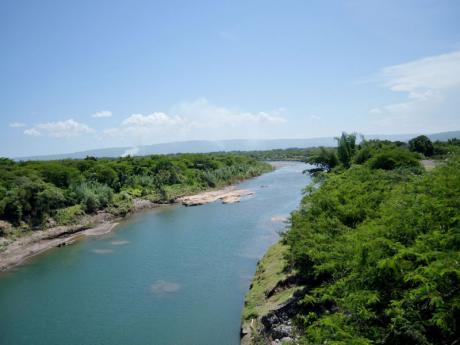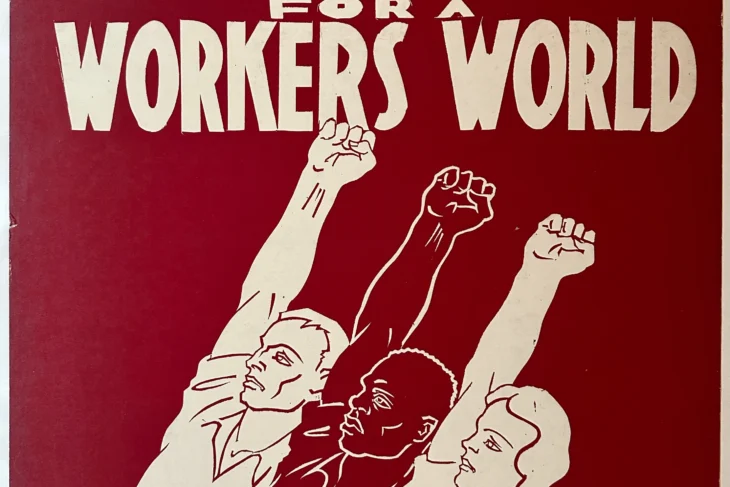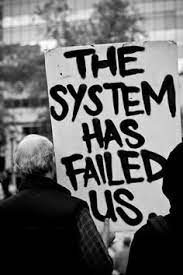
Second to the violence, pollution is, to me, the worst part about living in Jamaica. The air pollution and the physical garbage, or more specifically plastic, is uncomfortable.
As someone coming from Canada where not littering and environmental awareness are instilled as a social value from a very young age in homes, schools and other institutions; and garbage disposal is in a three tiered system- grey for landfill, blue for recycling and green for compostables- seeing both the lack of infrastructure and utter disregard for proper waste management is surprising and saddening.
The government is obviously trying to raise awareness with the “Nuh Dutty Up Jamaica” campaign and reduce plastic consumption with the banning of scandal bags and styrofoam boxes but that still leaves one big fat B…bottles. I don’t blame people for using plastic bottles as there are so few places to fill up the reusable water bottles that seem to be given out at many events. But this does not negate that they are a serious detriment on the environment and a serious eyesore for anyone trying to enjoy nature.
I understand that there are bread and butter needs that are often paramount to the environment. Some people, like those living in inner city communities or squatter settlements don’t have access to water at home. People may feel that the water they carry from the pipe is not safe to drink, especially for young children. For some buying plastic bottles may be the most accessible thing.
To draw a parallel with Canada: water bottles are rarely purchased although exceptions must be made when making this broad statement as clean water and proper sanitation is still an issue in our own First Nations reserves and people rely on bottled water for cooking, cleaning and bathing. Clean or “culinary” water in the home continues to be a quality of life indicator in every country.
If the garbage, specifically plastic consumption, is not reduced dramatically Jamaica’s tourism industry, which is secondary to its citizens, will be greatly impacted. Jamaica sells itself on pristine sandy beaches with turquoise waters and beautiful flowing waterfalls. That image is unfortunately a facade hiding a dirty secret.
Environmental stewardship is at the forefront of many people’s, including tourists, minds. For example you can choose to pay a little more when booking flights to offset your carbon footprint. Jamaica has the perfect natural beauty to welcome the eco-friendly tourist which continues to be a growing industry. However, as a temporary immigrant and someone who loves exploring the natural beauty of Jamaica, the garbage and litter is extremely off putting and undermines any effort towards eco-tourism. I can be sitting by a riverside when all of the sudden a plastic bottle comes floating by. Or bathing in the sea when what I think is a piece of seaweed grazes my foot only to look down and see a bag or a cup. To be frank, it’s disgusting.
To sum up my heartbreak when it comes to the Jamaican environment I would like to share this story. I often visit a friend in Portland who has a shop by a riverside. But the river is gross. I’ve often dreamed of bathing there while waiting for the shop to close but wouldn’t even dip a toe in the opaque brackish water. When I expressed this to my friend they said that growing up (which was only about 15 years ago) they used to jump off the very same bridge the shop was located nearby and people used to bathe in the river further up. But now the river is nothing more than a garbage waterway gently floating trash out to sea. After taking a closer look I saw that not only were there what seemed to be infinite physical pieces of plastic but that since many houses are not connected to the sewers the runoff from the houses go directly into the river.
What can be done? There needs to be a holistic and multifaceted approach. Environmental stewardship needs to be taught in homes and schools, and enforced in institutions. Infrastructure needs to be upgraded. Garbage cans should not only be on street corners but actually be collected in a consistent and scheduled way. People living in rural and inner city communities need to have access to consistent waste collection. The government needs to explore and invest in recycling programs. Perhaps most importantly there needs to be a stricter ban on plastic and styrofoam; there is no need for a single tomato to be on a piece of styrofoam and wrapped three times over with plastic. There need to be places in schools, parks, shopping centres and government offices to fill up reusable water bottles with clean drinking water.
If Jamaica is not proactive in protecting its environment from plastic waste there will be no water left for Jamaicans let alone to share with visitors to the island.



